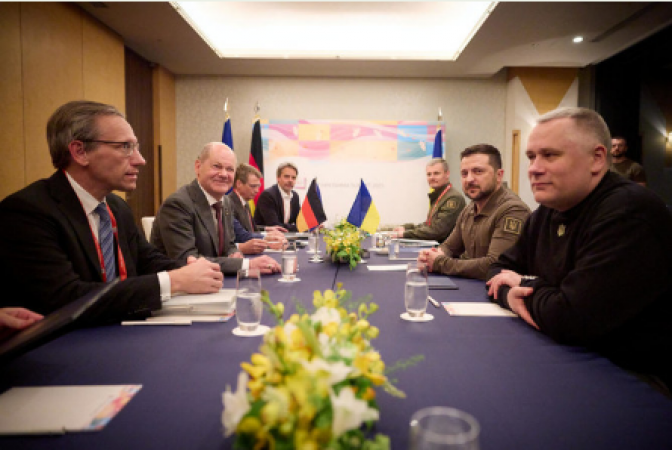
Beijing: China expressed "strong dissatisfaction" on Saturday with the G7 leaders' communique, which criticised Beijing on a number of fronts, including the South China Sea, human rights, and alleged meddling in their democracies.
Since Friday, leaders from the seven developed countries have gathered in the Japanese city of Hiroshima for a summit, which includes US Vice President Joe Biden.
In a statement, the bloc urged China "not to conduct interference activities" and voiced its concern over alleged human rights violations in China, particularly in the far-western provinces of Tibet and Xinjiang.
Also Read: London's mayor claims that PTSD was caused by death threats
In addition, they stated that the G7 nations were "gravely concerned" about territorial disputes in the South China Sea, inferring that China was using "coercion."
The G7 urged Beijing to exert pressure on Russia to stop its invasion of Ukraine by using its clout.
On Saturday night, however, the Chinese foreign ministry retaliated, claiming that the G7's "approach has no international credibility whatsoever."
Chinese foreign ministry spokesman: "The G7 insisted on manipulating China-related issues, smearing and attacking China."
China has officially protested the summit's hosting nation, Japan, and other pertinent parties, expressing its strong displeasure and firm opposition.
Also Read: Police in India's Assam region order obese officers to lose weight or resign
The G7 emphasised "the importance of peace and stability across the Taiwan Strait," but Beijing retaliated by criticising the group for failing to express a definite stance against Taiwan independence.
"The G7 makes a big deal about its desire to work towards a world that is peaceful, stable, and prosperous. But in reality, it's impeding regional stability, the development of other nations, and global peace, the spokesman claimed.
Also Read: France calls for increased US collaboration on terrorism threats
The Hiroshima communique is the result of discussions among the G7 nations, each of which has a different strategy for dealing with China.
While some countries, including the United States, favour a tougher stance, other nations in Europe prefer to avoid further conflict.